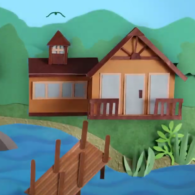Lots of people call me after vacationing in a cabin in the mountains or a lakeside cottage to explore the possibility of becoming the proud owner of a beautiful vacation home. Let’s face it, the idea that you can list a vacation home on Airbnb or VRBO and get other people to pay for your mortgage has great universal appeal. You can use the property with your own family and friends when you want, then rent it out when you’re not there. Right? Here are some considerations before shopping for that second home, as mortgage financing will be structured based on the type of property you intend to buy and how you intend to use it.
Understanding the difference between vacation homes, seasonal homes, and investment property
A vacation home or second home is what it sounds like: a home you would owner-occupy during your own time off or when on vacation. Second home financing is for single-unit properties only. You are expected to keep the property available for more than half the calendar year for your own use. If you are interested in a single-family home or condo, the down payment required is only 10% of the purchase price and the cost of the financing is not meaningfully different than a primary residence. You’ll need to qualify for this property without the benefit of projected rental income. Let’s put it another way, if you need to rent out a second home to qualify, it’s automatically considered an investment property. Another thing: if you are buying a home that has two or more units, even if it’s on a lake or mountain, it’s considered an Investment property and you’ll have to pay the higher costs of investment property financing. (More on that below.)
Seasonal vacation homes are properties with seasonal limitations that make them less-than-suitable for year-round occupancy. Financing is available with as little as 10% down and, like vacation home financing, the costs are nearly as low as for a primary residence.
Investment property is not normally a home you’d want to vacation in, or enjoy yourself. It’s typically a 1 – 4 unit property you would rent out to tenants for extended periods of time. Financing an investment property can be easier for some buyers because the projected rental income can be used to help you qualify for the mortgage. The bad news is that 20% to 25% down payment is typically required, and the cost of financing (fees and interest rate) is greater than a second/vacation/seasonal home.
Resort condos. Buying a condo inside a resort is a complex topic that can’t be covered completely here so I’m going to keep it simple: Many condos can be financed similarly to single family homes but there are some disqualifiers if any of these factors are present in your situation:
- A rental office within the complex that allow it to function like a hotel
- A high concentration of investors/tenants rather than owner-occupied vacation homes
- Inadequate insurance
- Unsatisfactory financials
- Pending litigation cases that represent a risk to the owners
If you have your heart set on a vacation condo, it’s best to have a conversation with us about the condo complex under consideration to learn about the financing options are available in that situation.
Airbnb restrictions on mortgage financing
To be eligible for “second home” financing you’ll be expected to keep the property available for more than half the calendar year for yourself. As long as you are interested in a single-family home or qualifying condo, the down payment requirement can be as little as 10% of the purchase price with the cost of the financing is not meaningfully different than a primary residence.
Next steps
If you want to learn more about the programs you qualify for when you buy a certain vacation home or second home, feel free to call me at 603-471-9300 or send me an email.

